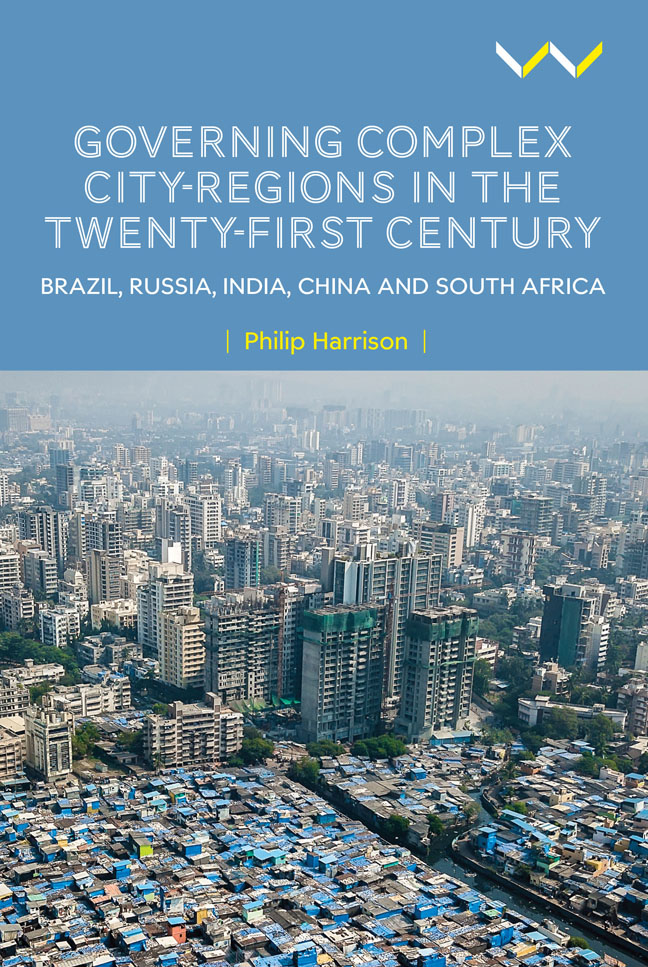 Governing Complex City-Regions in the Twenty-First Century
Governing Complex City-Regions in the Twenty-First Century Book contents
- Frontmatter
- Contents
- List of maps
- Preface
- Acknowledgements
- Acronyms
- Cartography
- Introduction: Exploring hyper-complexity
- 1 The global view: The city-region as material form, discourse and governmental practice
- 2 The governance of Brazil’s metropolitan regions
- 3 The governance of Russia’s urban agglomerations
- 4 Metropolitan and city-region governance in India
- 5 Governing the city clusters of China
- 6 City-region governance in South Africa
- 7 Concluding and comparative insights
- References
- Index
Preface
Published online by Cambridge University Press: 02 March 2024
- Frontmatter
- Contents
- List of maps
- Preface
- Acknowledgements
- Acronyms
- Cartography
- Introduction: Exploring hyper-complexity
- 1 The global view: The city-region as material form, discourse and governmental practice
- 2 The governance of Brazil’s metropolitan regions
- 3 The governance of Russia’s urban agglomerations
- 4 Metropolitan and city-region governance in India
- 5 Governing the city clusters of China
- 6 City-region governance in South Africa
- 7 Concluding and comparative insights
- References
- Index
Summary
The context from which I write and research is the Gauteng City-Region (or GCR) in South Africa. It comprises the cities of Johannesburg, Tshwane (Pretoria) and several other smaller urban areas. Gauteng is the economic and political heartland of South Africa. It is a place of huge complexity embedded in a history of mining, colonialism, apartheid, political struggle and imperfect attempts to construct a democratic order. Social divides and inequalities run deep, and fostering collective action by bringing together different interests and actors to address common concerns and threats presents daunting dilemmas.
I have spent nearly two and a half decades in the GCR, working as a government official, a planning commissioner and an academic, engaging with and observing a complexly evolving city-region. As an official, I worked between 2006 and 2010 for the City of Johannesburg Metropolitan Municipality, which, unusually in international terms, is a single-tier metropolitan authority governing a population that is now around six million. However, the urban territory flows across the boundaries of Johannesburg and through the region of 15 million or more people. The GCR is itself embedded in a wider urban system and interconnects with rural areas formed from South Africa’s mining and apartheid past.
The GCR is a difficult place to govern, and increasingly so with political factions and declining levels of trust among social actors. Periodically, over its roughly 130-year urban history, there have been attempts to create collaborative structures across municipal authorities, although within the countervailing circumstance of colonial and apartheid divides. The end of apartheid and the creation of metropolitan authorities and a provincial government, with a jurisdiction more or less coinciding with the apparent edges of urban agglomeration, offered a fresh opportunity for collaborative governance to address collective action dilemmas.
Some progress in overcoming spatial inequality was made with these new structures, especially in distributing basic urban infrastructure and services. However, the fundamental dilemmas remain or have been amplified – unemployment is at record levels, education is vastly unequal, many poor people remain spatially marginalised from places of work, mobility across the GCR is a daily challenge, energy supply is shamefully inadequate, public health facilities are deteriorating, infrastructures are poorly maintained and environmental quality is poor, especially along the old mining belt.
- Type
- Chapter
- Information
- Governing Complex City-Regions in the Twenty-First CenturyBrazil, Russia, India, China, and South Africa, pp. ix - xiiPublisher: Wits University PressPrint publication year: 2023


